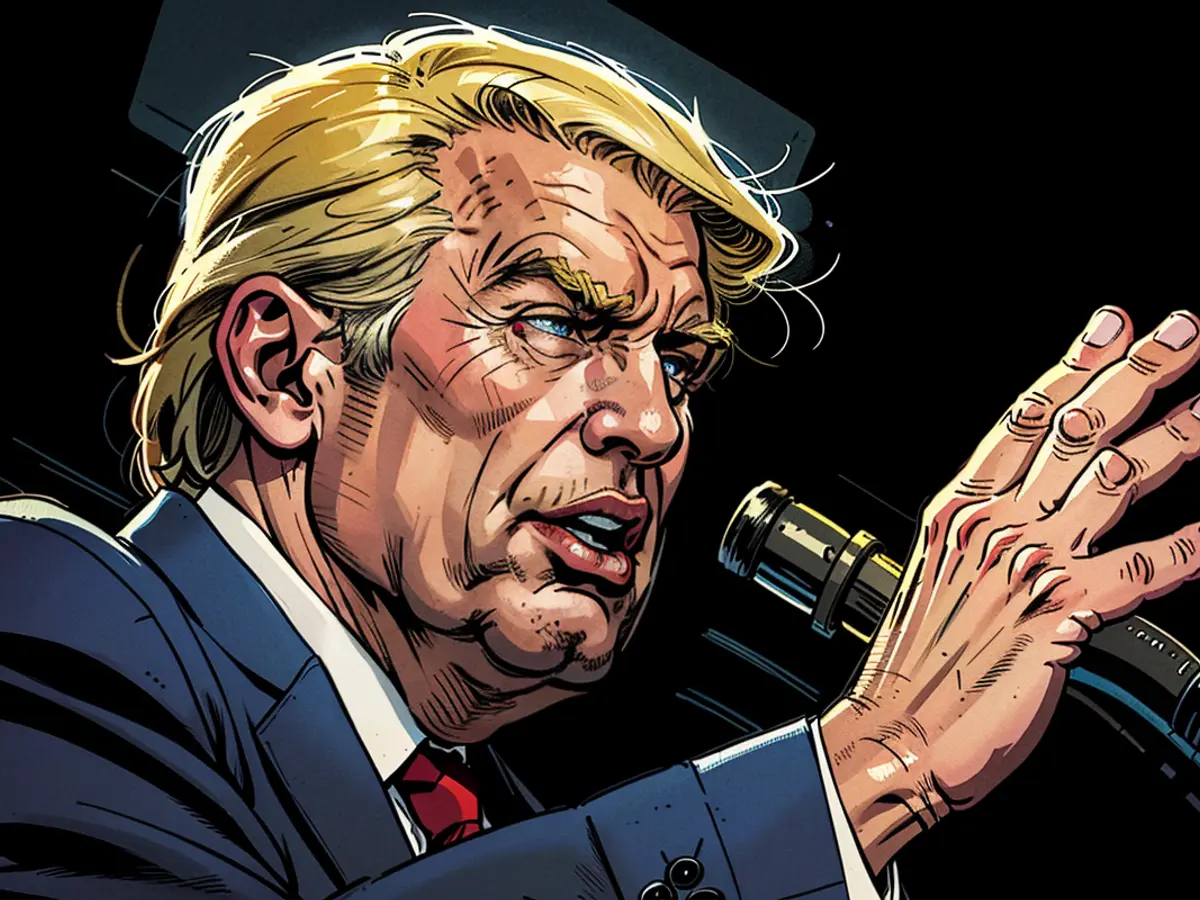"Germany should spearhead the efforts to aid Ukraine"
Thomas Silberhorn, representing the Union faction in German parliament for transatlantic relations, has connections with politicians from both American political parties. In a Chicago interview, he expresses optimism about a shared interest between the U.S. and Europe in containing Putin in Ukraine, even if Trump wins. If Trump does win, Europe, led by Germany, would need to take a more proactive role. According to Silberhorn, the key is strengthening economic ties to reduce reliance on China.
What brought you to the Republican and Democratic Party conventions in Chicago?
As a spokesperson for transatlantic relations within the CDU/CSU in the German Bundestag, I believe in maintaining positive connections with influential figures across all significant American political groups. Although the Republican Party aligns more closely with our values, we practice a different style of politics than what's been introduced by Donald Trump. He views himself as a dealmaker, while in Germany, we value cooperation and diplomacy. I view the Democratic Party in the U.S. as more leftist than social democratic, but it's a complex ideology that encapsulates various societal needs.
How would you categorize Kamala Harris?
As a candidate, Harris has emphasized that citizens should have the freedom to make decisions independently, and the government should avoid excessive intervention. Based on this, I'd label the Democrats a left-liberal group, leaning left of the center but prioritizing individual freedoms and liberty within society.
Have you established contacts for a potential Republican presidency this time around, considering Trump's past victory?
Currently, it's essential to maintain existing partnerships, monitor developments within the political landscape, and forge new connections. Many individuals, driven by their presidential candidate, are eager to build bridges and seize opportunities. In the event of a victory, the leadership's focus shifts to their duties, which may limit their availability for conversations. As a result, it's crucial to remain present throughout these transitions. I maintain relationships with various members of Congress and senators from both political parties.
Which election outcome would be more favorable for Germany given its interests?
Regardless of the election result, we must address and prepare for each scenario. Our primary concerns lie in foreign and economic policy. Germany depends heavily on exports. Our prosperity hinges on selling German-made products globally, including in the U.S. Therefore, we advocate for strong transatlantic commerce and oppose new tariffs.
What is Germany's stance on foreign policy issues such as China, Russia, and NATO if Trump emerges victorious?
Autocratic powers like Russia and China pose significant challenges to democracies worldwide. Together, we must face these issues to preserve our shared values and societal freedoms. We are consistently the targets of propaganda, disinformation, and cyber attacks from adversarial nations such as Russia and Iran. Cooperating with democracies worldwide is crucial in combating these threats.
Do you harbor a preference between Trump or Harris?
(No response, as the question is not directly related to the existing answers and does not provide sufficient context or clarification.)
Germany supports a more united approach in dealing with China and Russia. The Democrats seem to align more with our interests, but the Republicans, under Trump, are prone to protectionism and isolationism. To further clarify, we argue that China and Russia are working together, and countering China requires cooperation between democratic nations. We must recognize the risks of relying on China while promoting transatlantic trade to reduce our reliance on autocratic states.
Germany's reliance on trade with China is also a concern. Can you elaborate on your strategy to balance those interests?
We are working to diminish our dependence on China while strengthening transatlantic trade. Essentially, we are advocating for increased cooperation with the U.S. and Europe, to reduce our vulnerability to autocratic powers while promoting the wellbeing of our economies. Trump's proposed tariffs for both China and Europe would face strong opposition from Germany.
How would you confront potential tariff barriers?
We must understand that Trump values negotiations and striking deals. If we cannot offer him mutually beneficial solutions, we cannot expect him to be interested in our interests. Therefore, we must navigate through this dynamic, clearly expressing our values and priorities. In the transatlantic relationship, we share a common interest in reducing economic apartheid from autocratic states, particularly China. In foreign policy, we must work together to preserve our free and open societies.
Trump has suggested ending the Ukraine conflict instantaneously and halting assistance. What is Germany's approach to this scenario?
We believe that resolving global conflicts requires joint efforts and cooperation. The U.S. and Europe share common values as democracies, and we must stand together against autocratic powers. Many issues, such as Russia, China, and the war in Ukraine, demand collective attention and action. We cannot afford to fall into the trap of ideological division as we face these challenges together.
Here's a paraphrased version of the text:
I haven't seen that scenario yet. Kamala Harris, contrarily, has openly declared her commitment to continued military aid for Ukraine. This is true. Donald Trump believes a deal with Putin is possible to conclude this conflict. From the Republicans' perspective, everything else is essentially a European affair they're not keen on getting involved in, financially or otherwise. I'm not buying into the optimism that the Russia-Ukraine conflict can be resolved in this manner.
What's your take on it?
Putin has flatly dismissed all diplomatic efforts. He doesn't recognize Ukraine as a suitable interlocutor. For him, Ukraine is not a sovereign nation, and there isn't even a genuine Ukrainian people. Consequently, from his standpoint, there's no one he could negotiate with. He appears intent on engaging in talks with the US, in a way, over Ukraine's head, almost over the heads of Western Europeans as well. That's a point where we need to remind the US: If you want to negotiate with Putin, you need to talk to us too. It's about our future, our European security. If Putin attempts to alter Europe's boundaries through force, we must collectively have a vested interest in preventing that.
Who can halt Putin then?
Currently, it's only Ukraine's forces trying to halt Putin. If they falter, others will eventually have to step in. If the use of military force to impose imperialistic interests becomes a trend in Europe, there could be imitators worldwide. Therefore, the conflict in Ukraine is not merely an issue for Europeans, but a test for the international community as a whole. If the UN's ban on violence begins to erode, there'll be no universally binding international order left. That's why I believe these issues are not as straightforward to resolve as some, like Donald Trump and certain Republicans, may think.
Is there a Plan B in the Bundestag in case the US halts its aid to Ukraine while the conflict continues?
Europe needs leadership. We need to work together as Europeans, and as the most economically powerful nation in Europe, Germany should take the lead. We're providing military aid to Ukraine to halt Putin. If Ukraine can't do it, Putin still needs to be stopped, more so. If the Americans decide to abandon their support for Ukraine, which I don't anticipate happening yet, then we in Europe will all have to step up. Either Ukraine manages to halt Russia, or the situation for us in democratic Europe becomes increasingly complicated and dangerous.
Roland Peters discussed this matter with Thomas Silberhorn on the sidelines of the Democrats' convention in Chicago
The European Union, as a collective, shares a common interest with the United States in containing Putin's influence in Ukraine. Given Trump's potential victory, Germany, as a key member of the European Union, would need to take a more proactive role in maintaining transatlantic relations and countering Putin's actions. The European Union's key strategy to balance its reliance on trade with China while promoting transatlantic trade is by strengthening economic ties with the United States and other democratic nations.









